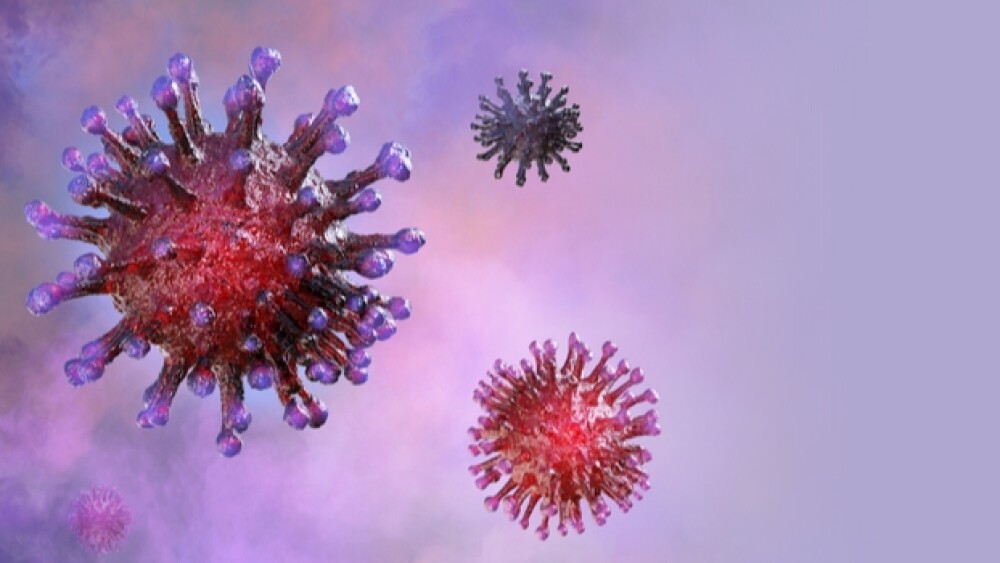“Although a 31% improvement doesn’t seem like a knockout 100%, it is a very important proof of concept,” said Anthony S. Fauci, director of NIAID. “What it has proven is that a drug can block this virus. This will be the standard of care.”
The U.S. National Institute of Allergy & Infectious Diseases (NIAID) reported that its clinical trial of Gilead Sciences’ remdesivir in 1,063 COVID-19 patients met its primary endpoint. Patients receiving the drug recovered faster than similar patients who received placebo. The trial was known as the Adaptive COVID-19 Treatment Trial (ACTT).
The trial marks the first real treatment for the disease caused by the novel coronavirus SARS-CoV-2. Preliminary data from the trial indicate that patients receiving remdesivir had a 31% faster time to recovery than the placebo group. Patients in the placebo group had a median 15 days recovery, while patients receiving remdesivir recovered a median 11 days. The survival benefit was not statistically significant, 8% compared to 11.6% for the placebo group, although it is at least suggestive of a survival benefit.
“Although a 31% improvement doesn’t seem like a knockout 100%, it is a very important proof of concept,” said Anthony S. Fauci, director of NIAID. “What it has proven is that a drug can block this virus. This will be the standard of care.”
NIAID plans to submit the data, which has not been fully released yet, to a peer-reviewed scientific journal.
The trial is one of three randomized, blinded Phase III trials evaluating the drug. In early April, Gilead increased the patient populations of the trial from an initial 440 patients, in addition to its two other Phase III trials of remdesivir, from 400 to 2,400 patients in a trial of adults with severe COVID-19, and from 600 to 1,600 in moderate COVID-19 patients in the other trial.
Also yesterday, Gilead reported encouraging results from an open-label trial of remdesivir, the Phase III SIMPLE trial that evaluated a 5-day and 10-day dosing regimen of the drug. The SIMPLE trial showed that patients receiving the 10-day regimen had similar improvement in clinical status compared to patients on the 5-day course. No new safety issues were observed. The company expects to submit the full data to a peer-reviewed journal in the coming weeks.
In an open letter published by Gilead’s chairman and chief executive officer Daniel O’Day, yesterday, said, “There is still more work to do and remdesivir has not been approved, but all of us at Gilead are humbled by what these promising results might mean for patients. After years of research and hard work on remdesivir, there is relief and gratitude among our teams today that their efforts have been so worthwhile.”
O’Day notes that one of the positive aspects of the SIMPLE trial results, particularly coupled with the NIAID’s trial data, is it indicates they currently have more drug manufactured than originally thought. The existing supply, he stated, “amounted to 1.5 million individual doses. We had estimated that this would be 140,000 treatment courses based on a 10-day treatment duration. The ability to shorten duration for severely ill patients means we can significantly increase the number of courses available, all of which Gilead has committed for donation.”
The company is working to build a global consortium of pharma and chemical manufacturers in order to expand global capacity and production. They are also working with regulators on emergency use authorizations for the drug.
Critics and researchers were quick to note that, as Fauci indicated, the drug is not exactly a cure. Umer Raffat, an analyst at Evercore ISI, wrote in a note to investors, “Remdesivir is a real drug for COVID … but again, not a silver bullet.”
Peter Bach, a physician and drug researcher at Memorial Sloan Kettering tweeted that because of the drug’s limited efficacy and best use in earlier infections, “its availability is not going to move the needle on social distancing relaxation.”
Keeping up the metaphors, former secretary of the U.S. Food and Drug Administration (FDA) Scott Gottlieb said remdesivir was “part of a better toolbox” for dealing with the disease, but that “it’s not a home run, a cure by any means. It’s not going to be a cure, but it is going to be a drug potentially that if you use it particularly early in the course of the disease … it could reduce their chances of having a really bad outcome.”





